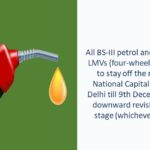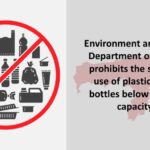The Delhi High Court has imposed a stay on the Central Government order banning the manufacture and sale of drugs containing oxytocin by private companies for a period of one month i.e. till 31st September, 2018.
Background:
Reference trail mail.
An order was passed by the Central Government on 27th April, 2018 to curb the misuse of Oxytocin by veterinary sector. The blanket ban was put into effect to prevent veterinary sector from misusing the drug for lactating bovine animals such as cow and buffalo for commercial purposes. The excessive misuse would affect the health of milk consumers. Despite being a lifesaving drug, the order permitted only a Public Sector Company i.e. Karnataka Antibiotics and Pharmaceutical Ltd (“KAPL”) to manufacture and sell oxytocin drug. The said Order restricted the Private Sector Companies from manufacturing or selling the said drug.
Reasons for Stay Order:
The Court has considered the following contentions of the Petitioner:
- MOFHW has not consulted the Drugs Consultative Committee (“DCC”) and the Drugs Technical Advisory Board (“DTAB”) before passing the said order. A Supreme Court Judgment, Union of India v Pfizer Ltd 2018(2) SCC 39 has been relied upon which states that Government has to seek recommendations of DCC and DATB before taking any decision under the Drugs and Cosmetics Act.
- KAPL will not be able to cater to the existing production capacity, i.e., 6 crore ampoules per annum.
- Out of 116 inspections, only 2 licensed manufacturers were suspended out of 112 manufacturers. The details of the record suggested that only eastern part of India i.e., Bihar and West Bengal has abused the law. Hence, such a radical measure affecting the entire country has been held arbitrary and unreasonable,
- KAPL was not a licensed manufacturer of Oxytocin until the ban on domestic sale of Oxytocin had come into place, i.e., April, 2018.
Source: Delhi High Court




